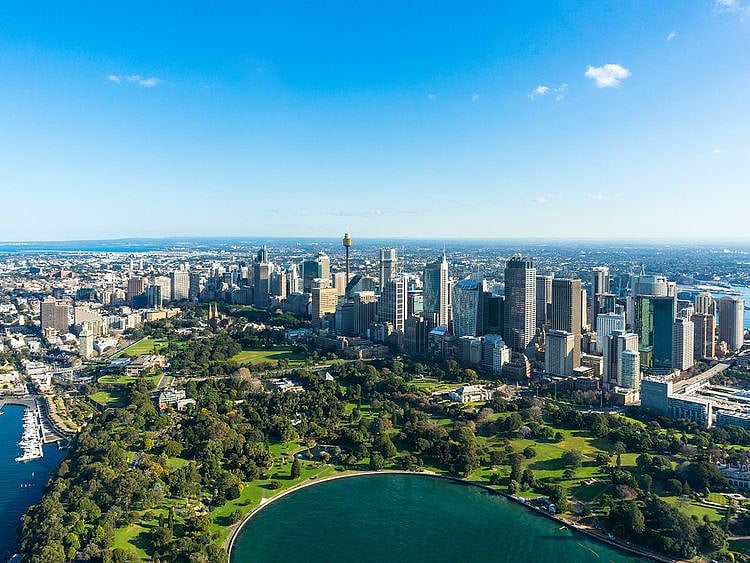Urbanization needs sustainable solutions on a global scale
To accommodate more people while slowing down climate change, we need scalable solutions

Growing up in Beijing, China, I saw the cityscape transition from courtyards to high-rise buildings. I’ve since lived in different cities, each with unique character: Phoenix, Rotterdam, Frankfurt, Tripoli, and now Helsinki, Finland, as Chief Innovation Officer for KONE. Our mission to improve the flow of urban life is close to my heart.
Over 50% of people live in urban areas today, and around 200,000 people move into cities every day. In addition to urbanization, sustainability and technology drive the development of smart cities. To accommodate the growing number of people while slowing down climate change, we need to adopt smarter, scalable solutions. Technology enables us to solve these challenges and helps make cities more livable and responsive.
But what makes a city smart and sustainable?
Many technologies already exist to meet the needs of today and tomorrow. In a recent experiment in Helsinki, an autonomous delivery robot carried food from a supermarket to people in a nearby high-rise building. The robot used KONE Application Programming Interfaces (APIs) to call an elevator and reach its customers. This shows how innovation and collaboration boost convenience.
Accessibility is another area of innovation. Earlier this year, we developed a solution connecting a wheelchair to our KONE DX Class digital experience elevator, meeting the increasing demands of an aging population and people with limited mobility.
COVID-19 has highlighted urban challenges while accelerating changes.
One example is a “15-minute city” where everything can be reached in 15 minutes on foot or by bike. Paris, for example, plans to turn every street bicycle friendly by 2024. By removing 72% of on-street parking, the freed-up space will be converted to greenery, vegetable plots, and playgrounds.
We have the potential to make life better for everyone in cities, but limited resources constrain progress. What’s more, cities are complex ecosystems with actors from city governments to educational institutions, state-owned utilities, foundations, and private companies. But they’re all united by the same end customer: the people. We – everyone living in cities – are increasingly seen as active agents in smart city ecosystems.
Companies have a key role not only in financing the initiatives, but also in technology and innovation expertise. The so-called public-private-people partnerships can speed up progress.
We at KONE are building a global ecosystem with an ambitious goal: to accommodate the next 1 billion urban dwellers over the next decade – in a smooth and sustainable way. Our VETURI innovation program, co-funded by Business Finland, is one example of ecosystem collaboration targeting four segments of the smart city: smart building, smart construction, smart mobility, and smart logistics with a joint market opportunity of over 100 billion EUR, and growing over 10% annually. Sustainable urban development is a good business case – it benefits cities and society at large.
In the spirit of collaboration and sustainability, we look forward to working towards a smart and sustainable urban future with you.
You can experience the KONE solutions as part of the Finland pavilion and around the Expo 2020 area.
The writer is the Chief Innovation Officer at KONE Corporation
Sign up for the Daily Briefing
Get the latest news and updates straight to your inbox
Network Links
GN StoreDownload our app
© Al Nisr Publishing LLC 2026. All rights reserved.